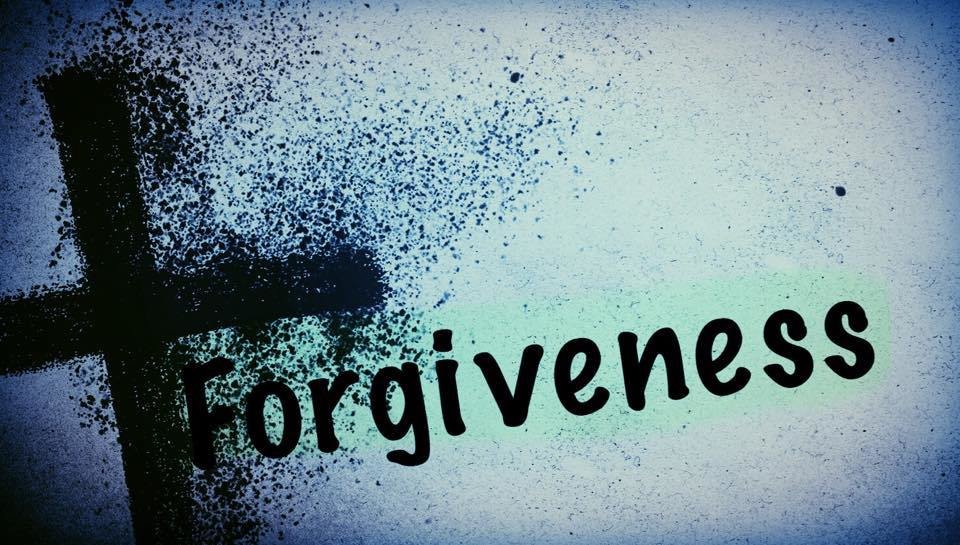Such repentance seems to require evidence of change before forgiveness is offered. Unless we are making progress toward the rectifying of the wrongs our society has done and our part in them, we should not ask for and we should not be granted forgiveness. It is a limited forgiveness and a conditional one that is constantly being checked against that progress to see if it is warranted or justified. What happens is that the focus is shifted away from the grantor of forgiveness and back to the sinner. That sinner deserves forgiveness only insofar as they are making headway in correcting their wrongs, atoning for them, and showing the improvement that is desired. This kind of repentance is merely a self-improvement program entered under duress.
Such repentance would not and cannot work before God. How could forgiveness be tied to improvement when we are dead in trespasses and sin? Even worse, it makes God's forgiveness something cheap and ordinary -- something regulated by and, indeed, occasioned by what the sinner thinks or feels or does. Advent and Lent are penitential seasons not because they are times for the faithful to focus on their complicity in the great sins of humanity and the encouragement of those selfsame sinners to try harder, to do better, and to reflect this in words and actions that befit their seriousness. No, this is not Advent or Lent. Advent and Lent are penitential seasons precisely because they are when the faithful are confronted with the scandalously generous mercy of God who forgives those who do not deserve such forgiveness, who bears the cost of that forgiveness solely, and who restores those who show no evidence of improvement in their thoughts, words, or deeds except taking ownership of their sins (not as societal ills in which they have participated but as personal sins which they confess).
Lutherans do not disdain the ordinary piety of penitential seasons -- fasting, alms giving, devotion, and worship services. But these are very places where we meet the mercy we do not deserve, where we hear about Him who bears the cost of our sin for us, and Him from whom the power to change our lives comes. In this way Lutherans have a particular and needed aid to what was once a time of renewed self-improvement doomed to fail (like the proverbial New Year's resolutions by now thankfully forgotten) and our own efforts at this better behavior. In addition, Lutherans have something to say against a confession which has become merely the acknowledgement of participation in corporate guilt and the failure to do more good instead of a confession of personal guilt and shame at that which was done wrong in thought, word, and deed. But Lutherans also have something to say for the amazing way that our consolation of the brethren and application of God's forgiveness has also mirrored this conditional forgiveness gauged by signs of improvement.
Why is it so hard for us to forgive others? Could it be that we have forgotten that forgiveness is not the reward or incentive offered to those who are fixing their problems but the unmerited mercy that focuses not on the wrong but on the cost of forgiveness willingly borne by the one forgiving? Looking at the unpleasantness of social media and the deterioration of civility in our nation and in our churches, it is worth looking at how we have translated the idea of a merited forgiveness into our personal relationships -- thus assuring that few will actually need to be forgiven! God's absolution is unconditional and it is bestowed not upon the worthy or deserving but sinners who own their sins and who invoke the atonement given for them by the blood of Christ upon the cross. It is not cheap grace (as Bonhoeffer complained) that denies the striving for the living out of this new life given to us freely but at great cost to God. What it is a focus on what grace is, what mercy is, what forgiveness is -- and that means looking not at the sinner but at the one forgiving.
Why would Jesus suggest in Matthew 18 that it is the duty of the wronged to seek out the one who wronged them? Why would Jesus frame this pursuit not in the context of vengeance or justice but of restoration and forgiveness? Why would Jesus make the condition of forgiveness not the changed behavior of the one who wronged but the desire of the wronged to forgive? Because that is what God has done. He sought out the sinner not for the sake of extracting revenge or getting justice but to show them mercy they did not deserve and made the sole condition of forgiveness was the heart of God. If we began to apply this in our personal relationships, how might things be different? Why do we wait for apologies from people who often do not even know that we are wounded? Why are we stingy with our forgiveness and attach so many conditions to that forgiveness? Why do we find it easier to remember the wrong than to forgive and forget it? Could it be that the problem here is OUR hearts and wills and desires and not simply the sins of the sinners against us? We are exactly those in Jesus' parable to who take mercy and then refuse it to others because what God is willing for us we are unwilling for others. Could this be the reason why in the middle of the prayer Jesus taught that connection between God's absolution of the undeserved is made with how we forgive others?
If you treat mercy as a treasure to be doled out sparingly to the few who deserve it, it is no wonder why you have trouble forgiving others. But the bigger problem may be that you have trouble with God's forgiveness as well. Something to think about as Lent approaches.

No comments:
Post a Comment